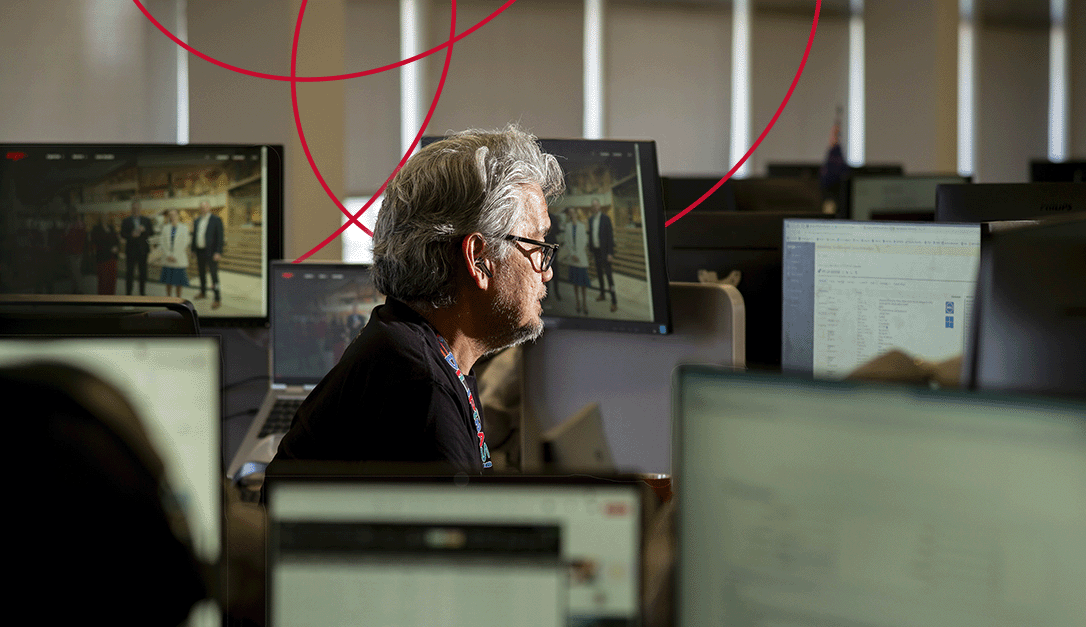Desktop virtualisation is the next stop on digital transformation journeys
There may never be a better time to persuade boardrooms of the wisdom in moving to a virtual desktop environment. The stock of the IT department is running high after technology kept the business going during the pandemic and the case for more flexible desktop solutions has been proven.
The last five years saw digital transformation become a top priority for businesses as they found themselves competing against more lean and agile firms and trying to navigate disruptive market forces. Pressure was on IT departments to replace monolithic systems that were hard to change and expensive to run.
The path away from proprietary systems and unwieldly IT stacks was signposted by virtualisation and cloud services. At Ergo, we engaged with business leaders who couldn’t wait to start the journey. What they relished was the prospect of turning IT services into an operational rather than capital cost, turning the management over to Ergo and liberating themselves from administrative overheads.
Today, every organisation relies on some aspect of virtualisation and they will have moved applications or portions of infrastructure to the cloud. The irony is, however, that one of the biggest pain points of legacy IT has hardly changed at all: the desktop estate.
While organisations are understandably reluctant to disrupt the employee experience and the way they access the applications and services they need, there are very good reasons why the time has come to consider desktop virtualisation as the next step in their digital transformation journey.
Here are two of them:
1. Take control and simplify administration
What we all know now is that silos are the biggest barrier to the control and flexibility that comes with running a digital business. The traditional desktop environment is the ultimate silo. Having each employee exclusively attached to an operating system (OS), user-authored data, applications and even a device, makes it difficult, not just to manage the desktop but to protect and secure it.
Upgrading and patching devices for every employee – making sure they are on the same software versions, the latest OS and security, covered by the same licences – is expensive and time consuming. It is a huge administrative headache that is largely relieved by having the single centralised view that a virtual environment provides of the entire estate. Ensuring every user’s desktop is up to date becomes much easier.
2. Become more agile and drive productivity
A more flexible approach to how and where people do their jobs will be needed in the post pandemic world. Many organisations are now talking to Ergo about a hybrid combination of home and office working for employees. The easiest way to ensure they have a seamless experience as they move between the two is to virtualise the desktop. It eradicates device dependency by enabling people to access their key applications via a browser, which make the OS and aspects of endpoint security irrelevant.
With greater visibility comes insight and analysis, gaining a better understanding of how employees work. Incremental improvements can begin to be made to help them work more effectively and increase productivity. It enables continuous improvement in a way that would be impossible with traditional desktop architecture.
Flavours of desktop virtualisation
There are different flavours of desktop virtualisation depending on the business need. For companies with proprietary applications or highly sensitive data that can’t go the cloud, Virtual Desktop Infrastructure (VDI) will be the way to go, where the desktop environment is privately hosted on a server. VDI retains a level of control that some businesses will demand.
For companies with less onerous data responsibilities and a more straightforward suite of applications, Desktop-as-a-Service (DaaS) is a perfect fit. Hosted by a cloud provider, it relieves the organisation of all refresh responsibilities while providing a robust and resilient environment that would be hard to replicate on premise or in a data centre.
DaaS is a natural next step for organisations pursuing cloud-first and cloud native strategies. If they are already making good use of Software-as-a-Service and Infrastructure-as-a-Service solutions, it’s a natural evolution, shifting the management of IT fundamentals from private data centres to public clouds.
For internal IT resources, it’s another opportunity to advance their role within the business. Instead of spending time firefighting and keeping the lights on, you can add value as a strategic advisor, steering your organisation to more agile solutions that will make the business more competitive.
Conclusion
There may never be a better time to persuade boardrooms of the wisdom in moving to a virtual desktop environment. The stock of the IT department is running high after technology kept the business going during the pandemic and the case for more flexible desktop solutions has been proven. There is a good chance that temporary fixes were put in place to get people working from home. Now the business has seen the benefits, it’s an opportunity to make some of those fixes permanent. Desktop virtualisation is one way to do it.






